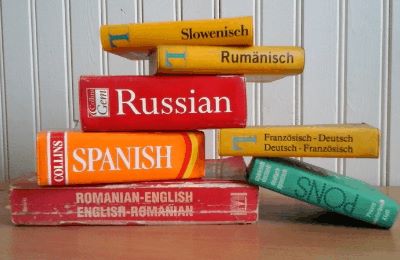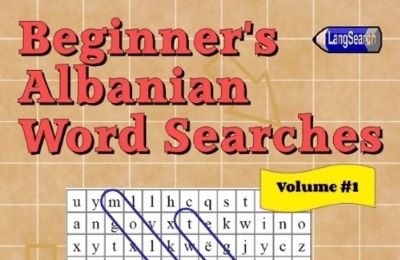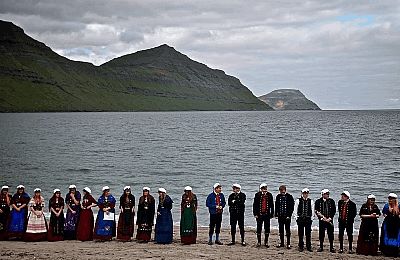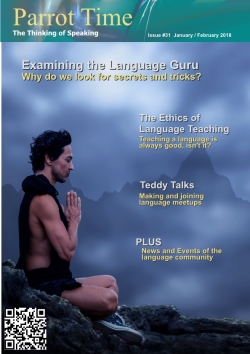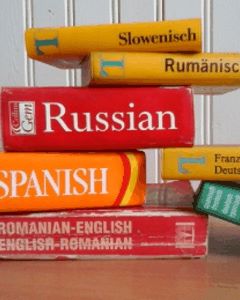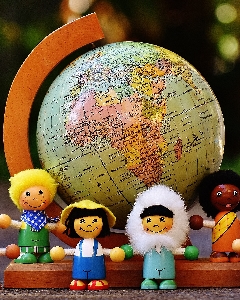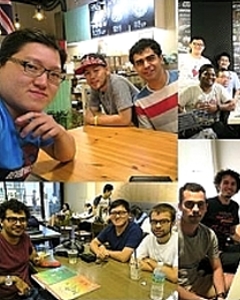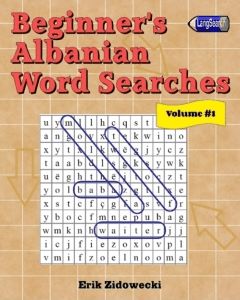How to Learn Any Language
- Breaking Down the Language Guru Myth

|
While browsing Amazon books online randomly one day for language resources, I saw a new language book coming out in 2018. The title promised that I would be able to become fluent in any language when using the information found in the book. I sighed.  It struck me that over the last few decades, we seem to have been abstracting information more frequently. The focus has been less on providing a person with the information to do something and more on helping with finding that information. Now, a part of me understands this. My father used to get perturbed when my sister or I would ask him the meaning a word. "Look it up!" he would tell us, to which we would justify our requests with "But it is easier to ask you". And indeed, it was. He wanted us to use a dictionary to search for each word so we would remember it, but we were more concerned about having the answer at the moment. A similar idea is put forth in the adage "Give a man a fish, and you feed him for a day. Teach a man to fish, and you feed him for a lifetime." Having the knowledge of how to achieve something might be more important at times than actually achieving. My problem with this is that teaching does not necessarily lead to learning and application. My own second part of that fishing adage is "Teach a man to fish, and he will complain how he has to do everything himself!". Back to the Books  If you've collected more than five language books at any one time, then you have probably come across one which promised to teach you a language within a certain amount time (sixteen months, eight months, three months, etc). Some claim "new" or "special" techniques, such as using mnemonics, scientific study of word orders, et. These are directed at a specific language because they are actually course books, and the methods they apply would probably be fine for most other languages. In fishing terms, they show you how to fish, then go fishing with you to make sure you get plenty to eat. The Pimsleur Method is a way of applying spaced repetition to audio files. DuoLingo also uses spaced repetition along with a variety of questions for words and phrases. The Rosetta Stone uses matching images to words and sentences. The Mello Method uses carefully planned sets of exercises that build up your understanding of the language to absorb the structures easily. None of these are the "secrets" of which I was speaking. They are just the formatting of one of the methods (audio, website, software, book) for which they then apply courses to. For the most part, any special trick they offer is probably nothing more than a gimmick, because while there are always other ways to study, the brunt work of obtaining a new language is studying and practising. Let me repeat that, because it is a core truth we often want to forget: to learn a language, you need to study hard and practise often. Some languages may take longer to learn and others will come easier to you, based mainly on what you already know, but the true key is just "study and practise". Why am I putting such an emphasis on that? Because, like most things, people want to find a way to get around the hard work and time-consuming practise to learn anything and instead know of a "secret" way to do it which is effortless and painless. Even though you have shown them how to fish, they believe you must know of a faster or easier way you aren't telling them. "How to Learn Any Language"  The desire for the fast track is what creates the idea that there are better ways of doing things. Now, don't get me wrong. There are always different ways of learning, and some methods will prove superior to others, and which of those depends on the individual. I wrote a whole series of articles about language learning methods, which I then published as a book, "Finding Your Way to Languages", looking at the pros and cons of each method. A person might work better in a structured classroom than trying to learn independently from a book or audio programs. Phrasebooks might be a good way to digest gulps of the language for some, while others might do best using the sink-or-swim approach of immersion. But the important thing to note is that those are all just methods of leaning. They all still need the application part, the studying, using them. Whether you are doing the course, the phrasebook, the immersion, you're still having to go through the hours of study. You are just doing it in a different format or medium. You might read that and think "well, of course. That's obvious", but I am betting you have still wondered at least once if there might be a neat tip you could apply to whatever method you are doing which would speed it up. And such a way must work for any and all languages, naturally. Some of these have appeared over the years as rather obvious frauds. One has been audio courses that will teach you while you sleep, so you will awaken fluent in another language. This one has not only come back into popularity, but a few sites even claim it works even better now. Another is magic pills that instantly infuse you with complete knowledge of the language. While those were long ago debunked, scientists are again beginning to make promises of such a thing in the future. The modern era has allowed for a greater means of producing the promising materials which will lure us in. Blogs have been kicking around for years about learning languages, ofter containing lists and countdowns to language assistance and learning the same way teen girl magazines gave the "secrets" to applying makeup or "tricks" to get that handsome boy to notice you. The only difference is that the teen magazines were probably more reliable. As an example, I googled "language blog 5 secrets to memorizing vocabulary" and was instantly rewarded with a link to blogs with articles touting their own list of tips: "8 Practical Ways to Learn...", "9 Imaginative Tips for Absorbing...", "12 Fun Ways to Learn and Remember...", "7 sure-fire ways to drastically improve...", "The 6 Best Techniques for Learning...". Now imagine how many language blogs out there, having to push out new articles each week, and you can get some understanding of how we are completely saturated by all of this advice. How do you know which is the best and which is worthless? How can you know who really knows the ancient secrets of vocabulary acquisition?  You look at books! Naturally, if someone has written a blog on it, and they really have truth to what they say, then they would have put it into books too! So you do searches on Amazon like I did to start all this and see what you come up with. I came up with 18 on the first three pages of an Amazon search, and that was just with the books who had varients on that title "How to Learn any Language". You might recognize some name and go with that person's book. You might try to see who has a book and matching blog, figuring that shows they are devoted and trusted (maybe). Or you might just ask yourself "What am I doing?" What You Are Doing See, somewhere along the line, you decided to seek help in your learning process from someone who you figured had done it before and might have some ideas on what you might do. Or maybe you've learned another language before and are looking for advice on refining your methods. The most obvious choice would be someone who has studied several languages and is writing about what they did. Or is it? After all, what has enabled that person to learn the languages they claim to speak. That's right, I said it: "claim to speak". Industries are built around people who have the knowledge, and the language community is no better. When you know something, or even seem to know something, your worth goes up. Power and prestige can also go up along with it, so there is plenty of incentive for a person to boast about skills they don't have or exaggerate their fluency claim. Whose to say they are lying? So you are seeking out those who are are titled "polyglots" and asking for them to share their wisdom. Much the same way we would look for a lawyer who has won more cases, we seek out the polyglot who has learned more languages. We fail to consider so many things in that choice, however. The most obvious is how difficult was it for the person to learn the languages. In some countries, the population is raised bilingually, with a third language like English taught in school. That means you might have a person who starts with three languages they never really had to work at on their own, then who have started learning two other. Another person might have had to travel constantly as a child because their family was in the military and while they have picked up several languages, it was all through immersion, not through any special learning methods. Both of these polyglots have had a significant advantage over someone who learned 5 languages by scraping together materials from any place they could. Yet if you asked them how they did it, no answer they give you would help you unless you could somehow replicate their growing up conditions.  And then there is the question of usage. I know several polyglots who put their skills to use doing translations, writing courses, teaching others, or maybe just maintaining and learning more for their own enjoyment. You probably know some as well, and may not even know it. Similar to actors. We can name a few dozen "big" celebrities, and yet in every show and move we watch, we may see a dozen to a thousand other actors who have also learned the practice. They just aren't being given the "star" billing. That is because while we tend to seek out those whom we see as polyglots, we do that for the ones who are "selling" that aspect of what they have done. If they have learned multiple languages, they must know something we don't, because we don't see all the hard work that went into it. This is just something else humans do. When we only see the final product and not the struggle, the fame can seem "easy". Most of our musicians, actors, dancers, writers, etc., did not get a chance in the spotlight because one morning, after having done nothing all their lives, they woke up and someone handed them a giant light bulb and contract. Those stars had to work a long time, learning and practising their crafts. They had no tricks and secrets, although a few may have gotten lucky, similar to those people growing up bilingually, or had some other advantage, like the polyglot who had to travel around. But becoming a polyglot doesn't signify any special power or knowledge inherently. Far more people than we know become polyglots because learning the languages was part of the journey, not the destination. The Language Guru This brings me back to the idea of abstracting knowledge. The polyglots most of us recognize are known not for what they learned but that they did learn. We want to know how they achieved this understanding, even though we already know the answer: study and practise. But that answer won't do, and instead, we pester them for their secret methods and mystical ways. They write about their experiences so we can read every detail that might give us the insight to advance our learning. We attend their talks, watch their videos, listen to podcasts, and buy their books. In a sense, they become our idols. Some become this way because we make them into it, some because they seek it out and want us to treat them this way. I'm not saying that these individuals are false or trying to fool people. Indeed, in some cases, their position as language gurus have made them ambassadors to the non-language learning world as well as inspiring many others to study harder to learn as they did.  However, obtaining knowledge or a skill does not mean some unique technique was used, or that some inherent ability was involved. So why do we believe this to be the case? Why do we hold to this conclusion that someone who has learned multiple languages must have some mysterious way of doing it. In fact, thinking this suggests that the person did not work hard and instead cheated. So why do we think this? First, it is human nature to believe that those around us are cheating at life. Everything they get or achieve is done through dishonesty or trickery. And that comes partially from our own desire to take the easy way out and as an excuse for our own underachieving. "I'd learn 5 languages too if I knew his secrets." So some polyglots use that delusion to promote that they do. And they will have their experiences to share which might be useful. But think of it this way: if any of them really had some instant trick to becoming fluent in multiple languages, enough people would have it heard it by now so you would be surrounded by these polyglots. "But wait!" you cry, "Lots of people claim they have used what they were told and got better results, so doesn't that prove such secrets exist?" My answer is "No", because when you talk more to those people making those claims, you will realize that while they might have gotten some advice and been inspired, there was no actual trick revealed, no curtain drawn back to show how the magic is done. The person simply buckled down and worked hard from the inspiration. And that is what I think should be a better way to view the polyglot elite. Not as some great wise men or women who have achieved an impossible dream, nor as some cheater who uses little-known methods to master a language quicker. They are Languages Achiever, dynamos, people who have worked hard to learn more. And there are a great many more around us than you know, hidden away among the bloggers, teachers, and translators. They may not have written any books promising a quick path, for they did not take one, but they got to their point of excellence nevertheless. So next time you look for a "How to Learn Any Language" or seek a guru's advice, remember that there are no easy paths to fluency and that it is important to recognize all who have gained higher levels of multiple languages, not just those who promote it. |
| How to Learn Any Language - Breaking Down the Language Guru Myth | |||
| Writer: | Erik Zidowecki | ||
| Images: | |||
| |||
All images are Copyright - CC BY-SA (Creative Commons Share Alike) by their respective owners, except for Petey, which is Public Domain (PD) or unless otherwise noted.
|
Looking for learning materials? Scriveremo Publishing, has lots of fun books and resource to help you learn a language. Click the link below to see our selection of books, availlable for over 30 langauges!
| |
comments powered by Disqus



